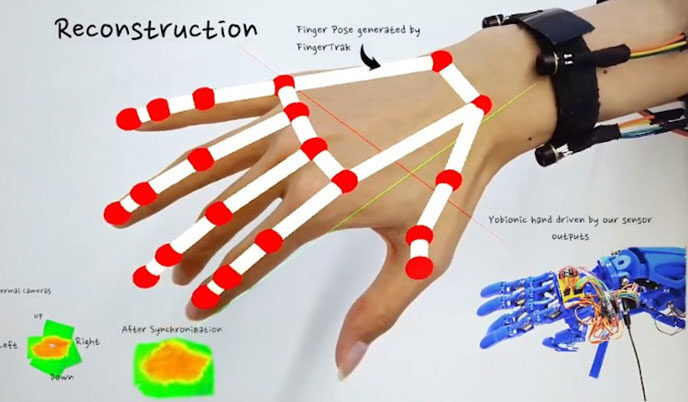
Researchers develop 3D hand-sensing wristband using UW software
Researchers from Cornell and the University of Wisconsin–Madison have designed a wrist-mounted device and developed software that allows continuous tracking of the entire human hand in three dimensions.
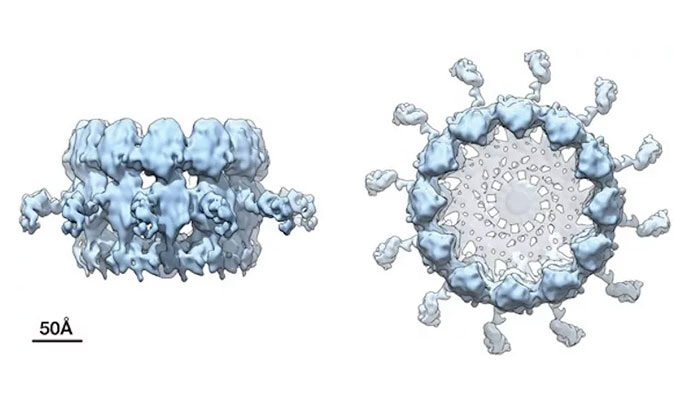
Detailed view of viral replication machinery lends new insights into infection
The coronavirus that causes COVID-19, SARS-CoV-2, is known as a positive-strand RNA virus because of the way it stores and makes copies of its genetic material. Many other important pathogens such as the Zika, dengue and chikungunya viruses are also part of this same group — the largest of six genetic classes of viruses.
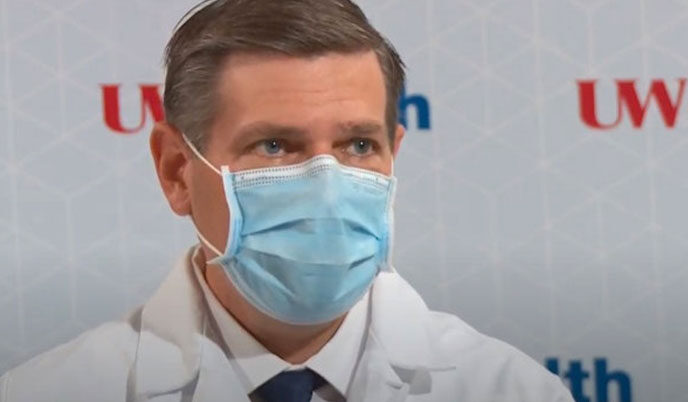
Three COVID-19 clinical trials move forward at UW
The University of Wisconsin School of Medicine and Public Health and UW Health will conduct three clinical trials to test a new treatment and preventative for COVID-19, in collaboration with Regeneron Pharmaceuticals.

‘COVID toes’ clinical trial underway at UW School of Medicine and Public Health
A team of researchers at the University of Wisconsin School of Medicine and Public Health is studying how the skin condition referred to as “COVID toes” is a connected to the virus, whether it is symptom of a COVID-19 infection or an immune response to the virus.
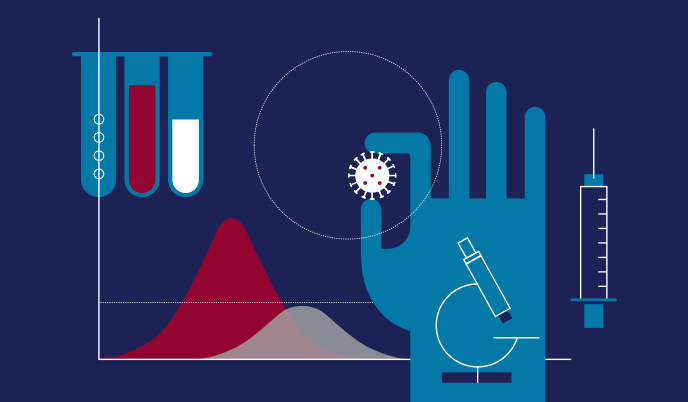
In COVID-19 response, don’t let urgency trump sound science
Bioethicist Pilar Ossorio says the world could be at risk of sacrificing essential knowledge for fighting COVID-19 and future deadly viruses if the COVID-19 response is not accompanied by sound research.

Respiratory allergies and allergic asthma may have protective mechanism in COVID-19
Respiratory allergy, asthma and controlled allergen exposure were associated with significantly reduced gene expression in a protein that the coronavirus uses to infect cells with COVID-19, according to a new study by the University of Wisconsin School of Medicine and Public Health.

Maps provide zip code-level detail on risk of COVID-19 complications across Wisconsin
Researchers at the University of Wisconsin School of Medicine and Public Health are providing local public health officials across Wisconsin with zip code-level data on the susceptibility of residents to severe complications from COVID-19.
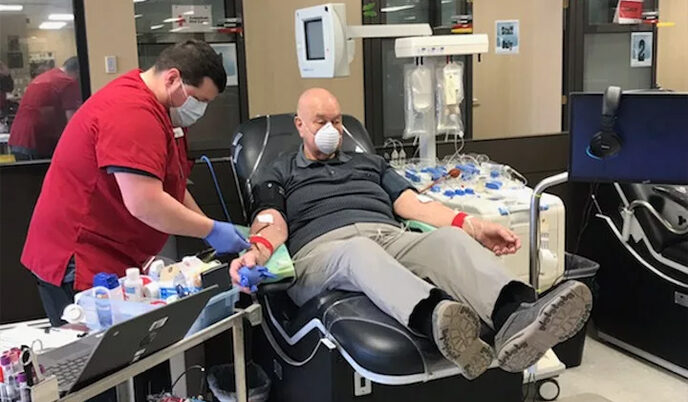
First COVID-19 patient at University Hospital treated with plasma from recovered patient
A COVID-19 patient at UW Hospital has received the first transfusion of plasma from a local patient who donated it since recovering from the disease.

Deleting a gene prevents Type 1 diabetes in mice by disguising insulin-producing cells
Removing a gene from the cells that produce insulin prevents mice from developing Type 1 diabetes by sparing the cells an attack from their own immune system, a new UW–Madison study shows.

Molds damage lung’s protective barrier to spur future asthma attacks
University of Wisconsin–Madison researchers have identified a new way that common Aspergillus molds can induce asthma, by first attacking the protective tissue barrier deep in the lungs.
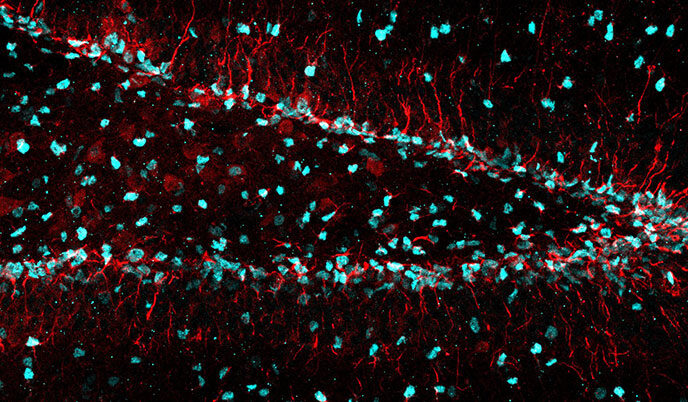
Newly identified cellular ‘trash removal program’ helps create new neurons
New research by University of Wisconsin-Madison scientists reveals how a cellular filament helps neural stem cells clear damaged and clumped proteins, an important step in eventually producing new neurons.

Marmoset stem cells carrying Parkinson’s mutation could lead to new model for studying disease
Parkinson’s disease researchers have used gene-editing tools to introduce the disorder’s most common genetic mutation into marmoset monkey stem cells and to successfully tamp down cellular chemistry that often goes awry in Parkinson’s patients.